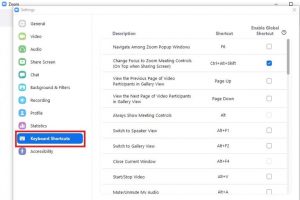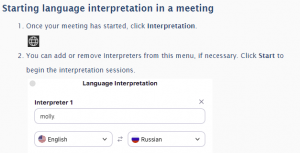The Romanian National Institute of Public Health
Methodology for the surveillance of the acute respiratory syndrome caused by the novel coronavirus (COVID-19)
Updated on 23.07.2020
- Name and classification of the disease
The following ICD codes have been assigned for the acute respiratory syndrome caused by the novel coronavirus (COVID-19):
- 1 – COVID-19, identified virus = valid for CONFIRMED cases
- 2 – COVID-19, unidentified virus = valid for SUSPECT cases
The ICD-10 coding for COVID-19 based on the clinical picture has been communicated to the public health directorates in all counties and Bucharest.
Confirmed cases will be reported to the Register for Communicable Diseases (RUBT, Registrul Unic de Boli Transmisibile) and to CNSISP (The National Center for Statistics and Public Health) as an “unusual / unforeseen event”.
- Initial basis
2019-nCoV (subsequently called SARS-CoV-2) is a new strain of coronavirus that has not been previously identified in humans. Outbreaks of infections caused by new coronaviruses in humans are always a matter of public health importance and a cause of concern.
The first cases in EU/EEA were confirmed in France. ECDC warned of a probable further worldwide spread.
Human-to-human transmission has been confirmed, but more data are needed to assess the scale of this transmission. EU/EEA countries should ensure that timely and rigorous measures are applied for the prevention and control of the infection when dealing with cases identified within the EU/EEA, in order to prevent future sustained human-to-human transmission in the community and healthcare settings.
Adapted from ECDC: www.ecdc.europa.eu/en/novel-coronavirus-china
In this context, it is imperative to implement in Romania the surveillance system for the human infection with the new coronavirus (2019-nCoV, subsequently called SARS-CoV-2).
III. Purpose:
– To gain a better understanding of the epidemiological situation of the acute respiratory syndrome caused by the novel coronavirus (COVID-19) in Romania and recommend measures / interventions to prevent the occurrence of secondary cases or an epidemic in Romania
- Objective:
– To establish the basic epidemiological parameters of the SARS-CoV-2 infection:
- Characteristics of the case with respect to the individual, place, and time;
- Basic clinical picture (signs and symptoms);
- Pre-existing medical and physiological conditions;
- Clinical course, outcome, and severity;
- Exposures and travel history
The information collected from surveillance activities will also be used for the national risk assessment, as well as to guide response decisions.
- Case definitions for the acute respiratory syndrome caused by the novel coronavirus (COVID-19)
Suspect case
Any person with acute respiratory infection (sudden onset of at least one of the following symptoms): cough, fever, breathing difficulties (shortness of breath)
OR
Any person with pneumonia, bronchopneumonia +/- pleurisy
OR
Any person with a severe acute respiratory infection (SARI) (fever or a history of fever AND cough AND breathing difficulties (shortness of breath) AND requiring overnight hospitalisation)
Note:
For children under the age of 16 years presenting gastrointestinal symptoms (vomiting, diarrhoea) that are not food-related, a SARS-CoV-2 infection may be suspected.
Definitions of community-transmitted COVID-19 and HCAI
A COVID-19 case may have originated in the community or may be a case of healthcare-associated infection (HCAI), depending on:
– the number of days prior to the onset or laboratory confirmation of the infection, after the date of admission to a medical facility (hospital, dialysis centre) or a long-term residential care centre (day 1);
– evidence obtained from the epidemiological investigation with respect to its origin in the community or as a HCAI (whether the case relates to an outbreak site that has either one of the possible origins)
The following situations may occur:
- Community-associated COVID-19 case
– symptoms are present at admission or the onset is within 48 hours after admission;
– onset during days 3 to 7 after admission and a strong suspicion of community-transmission (association with a community outbreak site);
- Healthcare-associated COVID-19 case (HCAI)
– onset later than 48 hours after admission and a strong suspicion of transmission associated to healthcare);
– cases among the medical and auxiliary healthcare staff, if there is no strong evidence in support of community transmission;
Cases with onset within the first 14 days after discharge from a healthcare facility may be:
– HCAI, if the onset occurs within the first 48 hours after discharge;
– of uncertain origin, if the onset occurs 3 to 14 days after discharge and there is no strong evidence in support of either community origin or HCAI
Assignment to a certain category of transmission should be determined only after a careful assessment of each individual case.
Confirmed case
A person that has received laboratory confirmation of the SARS-CoV-2 infection, irrespective of the clinical signs and symptoms.
A close contact is defined as:
– A person who lives in the same household with a COVID-19 patient;
– A person who has had direct physical contact with a case of COVID-19 (e.g., handshake not followed by hand sanitisation);
– A person who has had unprotected direct contact with the infectious secretions of a COVID-19 case (e.g., while coughing, touching used handkerchiefs without wearing protective gloves);
– A person who has had face-to-face contact with a case of COVID-19 at a distance of less than 2 metres and for duration of at least 15 minutes;
– A person who has been in the same room (e.g., classroom, meeting room, hospital waiting room) with a case of COVID-19 for at least 15 minutes and at a distance of less than 2 meters;
– A healthcare professional or other person providing direct assistance to a COVID-19 patient or laboratory personnel handling samples collected from a COVID-19 patient without proper use of personal protection equipment*;
*Healthcare personnel who have observed the proper use of protection equipment as required by the type of assistance provided ARE NOT CONSIDERED A CLOSE CONTACT.
The epidemiological link may have occurred within a period of 14 days prior to the date of onset.
Death of a confirmed COVID-19 patient
A COVID-19 death is defined as the death of a confirmed COVID-19 patient, unless there is another clear cause of death that cannot be related to COVID disease (e.g., trauma, major acute bleeding, etc.) with no period of complete recovery between the illness and death.
A death due to COVID-19 cannot be attributed to another pre-existing condition (e.g., cancer, blood disorders) and COVID-19 should be reported as the cause of death independently of pre-existing medical conditions that are suspected of triggering a severe course of COVID-19.
COVID-19 must be specified on the death certificate as the cause of death for all individuals whose death was caused by COVID-19 or it is assumed that COVID-19 caused or contributed to their death.
It should also be mentioned that, pursuant to the Order of the Minister of Health no. 961/2020 issued to amend and supplement the Order of the Minister of Health no. 555/2020 on the approval of the Action Plan to prepare hospitals in the context of the COVID-19 epidemic, the List of hospitals that provide medical assistance to patients tested positive for the SARS-CoV-2 virus in phase I and in phase II, and the List of support hospitals for patients tested positive or suspected of SARS-CoV-2 virus, confirmed cases of COVID resulting in death for which the findings of the RT-PCR dynamic profile in sputum / bronchial aspirate are negative (2 tests) may be considered as death due to SARS-CoV-2 infection if the clinician identifies signs and symptoms highly suggestive of this and the death is correlated with the clinical course determined by COVID. If it is necessary to clarify the cause of death, RT-PCR testing of lung tissue collected by a specialist of pathological anatomy / forensic medicine specialist is recommended, and necropsy is not required.
Criteria for performing SARS-CoV-2 testing
Prompt confirmation of a suspect case is necessary in order to ensure, in a fast and efficient manner, the epidemiological surveillance of contacts, implementation of prevention and control measures, and the collection of epidemiologically and clinically relevant information.
Guidelines for COVID-19 priority testing:
- Symptomatic persons, including medical and auxiliary healthcare personnel, according to the case definition;
- Symptomatic close contacts of confirmed cases;
- Asymptomatic patients within 48 hours prior to a transplant procedure and donors of organs, tissues, and of hematopoietic stem cells, prior to the procedure; recipients of transplants of organs, tissues, and of hematopoietic stem cells who are undergoing immunosuppressive therapy, prior to each hospitalisation during the post-transplant monitoring – 2 tests at a 24-hour interval;
- Medical teams collecting organs for transplant who travel between the transplant centre and the collection centres – once every 2 weeks;
- Asymptomatic patients with disease or drug-induced immunosuppression, within 48 hours prior to hospitalisation;
In this context, immunosuppression refers to: cytotoxic chemotherapy, extended-release biologics, cellular immunotherapy, and high doses of glucocorticoids, according to the guidelines provided by the Infectious Diseases Society of America (6.05.2020), accessed at https://www.idsociety.org/practice-guideline/covid-19-guideline-diagnostics/
- Asymptomatic cancer patients undergoing chemotherapy and/or radiotherapy:
– Asymptomatic cancer patients undergoing chemotherapy – within 48 hours prior to each cycle and prior each visit to the hospital for monitoring purposes;
– Asymptomatic cancer patients undergoing radiotherapy – before the first session and afterwards once every 14 days until the therapy regimen is completed;
- Asymptomatic cancer patients before surgery or invasive procedures, within 48 hours prior to the surgical intervention / procedure;
Note:
With regard to points 6. and 7., in case of children hospitalised with an adult, the accompanying adult shall also be tested.
- Asymptomatic patients undergoing haemodialysis – twice a month;
– Asymptomatic patients undergoing haemodialysis who have been in contact with a confirmed case, 2 tests every 6-7 days; throughout this period, these patients will receive haemodialysis separately from other patients;
- Symptomatic patients undergoing haemodialysis;
- Institutionalised asymptomatic individuals – twice a month;
- Personnel providing assistance in long-term residential care centres – twice a month;
- Asymptomatic pregnant women who are either quarantined / isolated at home or have been in close contact with a confirmed case – on day 14 if still asymptomatic;
- Asymptomatic medical and auxiliary healthcare personnel who have been in direct contact with a confirmed case, 6-7 days after the last contact with a potential infected patient**;
** During the period following contact with a potential infected patient and until the laboratory results are known, healthcare personnel will continue their activity in compliance with standard protection measures.
Positive cases among symptomatic or asymptomatic healthcare personnel will follow the required isolation procedures that apply to other infected individuals.
Changes in the epidemiological circumstances may lead to the revision of these recommendations.
Medical facilities may establish testing protocols for the medical personnel and/or patients using RT-PCR techniques, in addition to these recommendations, which can be carried out using their own resources, either in their own laboratories or in other laboratories.
The test reports showing positive results shall be reported immediately, scanned and included in the same e-mail message sent by the laboratory that has performed the test to the hospital that requested the test, to the public health directorate that has jurisdiction over the case, and to the National Institute of Public Health (INSP), and then necessary action will be taken to hospitalise / isolate the infected individuals.
In such cases, the medical facilities will conduct their own epidemiological investigation and will undertake measures to limit the infection; these actions fall under direct responsibility of the manager.
The report of the epidemiological investigation will be sent within 24 hours to the public health directorate in the county to which the case belongs.
Laboratory investigations
Samples must be collected according to Appendix 2 and sent to the laboratory, together with the Form accompanying specimens collected from a suspected COVID-19 case provided in Appendix 3.
Respiratory samples that have been collected shall be sent to the specialised centres that perform RT-PCR testing for the identification of SARS-CoV-2, specified in the Technical standards for the implementation of National Health Programme (PNS).
Laboratory personnel will comply strictly with the precautions required for the prevention of SARS-CoV-2 infection.
The method used for testing is the nucleic acid amplification testing (NAAT), which includes RT-PCR. Patients may be tested for other respiratory pathogens as well, but this should not delay the testing for SARS–CoV-2.
Due to the possibility of co-infections, patients who meet the case definition should be tested for SARS-CoV-2 regardless of the presence of another respiratory pathogen.
The minimum set of specimens recommended to be collected for diagnostic include:
– Upper respiratory specimens (nasopharyngeal and oro-pharyngeal swab or wash) – it is recommended to use Dacron or polyester swabs, with plastic shafts, and to place both the nasopharyngeal and the pharyngeal swabs in the (same) vial containing the viral transport medium (VTM).
and/or
– Lower respiratory tract specimens: sputum (if expectorated) and/or endotracheal aspirate or bronchoalveolar lavage, collected from patients with severe acute respiratory infection.
In case of deceased patients suspected of COVID-19 autopsy lung specimens will be collected and sent to the laboratory for viral diagnosis. The collection of samples is not typically required for cases previously confirmed based on nasopharyngeal swabs or bronchotracheal aspirate, nor in cases with a negative result for SARS-CoV-2 based on these specimens.
Details regarding the collection of pathological specimens and laboratory tests can be found in Appendix 2.
- Type of surveillance: case-based, passive/active
VII. Population: all residents / people visiting Romania
VIII. Period: permanent
- Reporting data:
- The minimum set of data to be reported immediately by telephone for a suspected case:
– Case code, name, first name, Personal Identification Number (CNP), date of onset, symptoms (in correlation with the case definition), epidemiological link (contact with a confirmed case), occupation (e.g., healthcare personnel), date and place of hospitalisation, date and place of death;
- In case of deaths recorded for confirmed cases of COVID-19: case code, Personal Identification Number (CNP), date of onset, symptoms (in correlation with the case definition), epidemiological link (contact with a confirmed case), occupation (e.g., healthcare personnel), date and place of hospitalisation, date and place of collection, date and place of confirmation (laboratory), date and place of death, pre-existing medical conditions;
- In accordance with the Patient Monitoring Chart pertaining to a CONFIRMED case of COVID-19 (Appendix 1), therefore only for a confirmed case;
Data from the patient monitoring charts pertaining to confirmed cases are entered into the online application
See also X. Information circuit and informational feedback
- Information circuit and informational feedback
Peripheral level: hospitals
- report to the Public Health Directorate (DSP) immediately, by telephone, the minimum set of data pertaining to the suspected case: name, first name, Personal Identification Number (CNP), date of onset, symptoms (in correlation with the case definition), epidemiological link (contact with a confirmed case), date of death;
- report to DSP immediately, by telephone, the deaths recorded for confirmed COVID-19 cases;
- collect and test / send biological specimens to the laboratory, together with the accompanying form that is provided in Appendix 3, which is a mandatory document;
Peripheral level: laboratories performing COVID-19 testing using RT-PCR:
- report immediately the test reports with validated results, signed and sealed, scanned, by e-mail, in the same message sent to the DSP that has jurisdiction over the case (the DSP in the county where the infection occurred) or which has requested preventive testing, according to the testing algorithm, to the hospital that requested the tests, or to the National Institute of Public Health – The National Centre for Communicable Diseases Surveillance and Control (INSP-CNSCBT);
- report the tests performed for COVID-19 on a daily basis, between 8-9 a.m. for the previous day, on the platform of the Ministry of Health;
- report the tests performed for COVID-19 on a daily basis, until 10 a.m. for the previous day, to INSP-CNSCBT, using the e-mail address raportare_covid@insp.gov.ro;
The number of positive cases will be notified in advance, by telephone, calling the mobile number 0744510640 or 0742031461 or the landline number 021 3179702.
The algorithm for reporting suspected COVID-19 cases is posted on CNSCBT website http://www.cnscbt.ro/index.php/informatii-pentru-personalul-medico-sanitar
As mentioned in the algorithm provided for testing, admission to hospital and discharge from hospital, all cases of pneumonia and all cases of SARI with no other aetiology (e.g., influenza) for ALL age categories and from ALL hospitals will be tested for COVID-19.
For all suspected/confirmed cases of COVID-19 identified as a result of sentinel surveillance for SARI, it shall also be required to fill in the Monitoring chart pertaining to a case of SARI (Severe Acute Respiratory Infection).
Peripheral level: family medicine practices, other medical practices
- isolate and apply a mask on the nose and mouth of the suspect case;
- call 112;report to DSP immediately, by telephone, the minimum set of data pertaining to the suspected case: name, first name, Personal Identification Number (CNP), date of onset, symptoms (in correlation with the case definition), epidemiological link (contact with a confirmed case),occupation (e.g., healthcare personnel);
- refer the suspect case to the hospital, using an ambulance;
- notify DSP immediately, by telephone the recorded deaths of suspect/confirmed cases of COVID-19;
Local level: County DSP / Bucharest DSP
- report immediately on the STS platform any positive result;
- enter the rest of the data required for a newly confirmed case into the STS platform within 24 hours;
- initiate the epidemiological investigation for the CONFIRMED case within 24 hours;
- enter the minimum set of data that is required for immediate reporting by telephone of a SUSPECT case into the electronic platform dedicated to the monitoring record;
- complete and upload on the electronic platform dedicated to the monitoring record of the CONFIRMED case, within 7 days, the data contained in this chart (Appendix 1);
- report to CNSCBT, immediately after detection, any outbreak site with at least 3 cases, including the measures that have been recommended / implemented;
- immediately initiate the epidemiological investigation for the clusters;
- report immediately, by telephone to CNSCBT, the deaths recorded for suspect/confirmed cases of COVID-19, and afterwards the updated monitoring chart including the information related to the death must be sent within 24 hours after death by fax/e-mail to CNSCBT and CRSP, with the specification “Update”;
- initiate immediately the epidemiological investigation for the deceased case;
- receive laboratory results from CNSCBT;
Regional level: CRSP (Regional Centre of Public Health)
- takes action in the epidemiological investigations carried out with respect to clusters / outbreaks and provides technical assistance, upon request made by the DSP in its area of jurisdiction or following a request made by CNSCBT;
- sends to CNSCBT and DSP, on a quarterly basis, the epidemiological analysis of the cases within its area of jurisdiction;
National level: CNSCBT
- checks the entries made by DPS on the STS concerning the data and information pertaining to the confirmed cases and outbreak sites;
- checks the minimum sets of data pertaining to SUSPECT cases and the information included in the monitoring charts pertaining to CONFIRMED cases (Appendix 1), uploaded on the online platform dedicated for these records;
- sends to the Ministry of Health, every day at 12:00, the reports concerning the tests completed in the laboratories and the stocks of testing kits;
- collects daily the validated, signed and sealed, scanned tests reports sent by laboratories;
- conducts the epidemiological analysis of the national database and send the results to the Ministry of Health (MS) – DGAMSP (General Directorate for Medical Assistance and Public Health), CRSP, and DSP;
- reports the confirmed cases in TESSy, case by case;
- Provides to IHR department within INSP the information requested by WHO-IHR.
The National Focal Point for RSI (2005):
Provides to CNSCBT information updated daily with regard to the number of cases and participates in the national risk assessment.
- Control measures
Are applied immediately after the identification of a suspect case of COVID-19, without waiting for the laboratory test results!
1) Conduct with respect to the case:
A case is deemed to be infectious 2 days prior to onset and for another 14 days after the onset.
The following actions are required:
- isolation of the suspect and confirmed cases;
- implementation of precautionary measures to avoid transmission by droplets, contact and, as the case may be, air-borne transmission, as well as universal precautions throughout the period of hospitalisation;
- training of the personnel providing assistance to the suspect case / case confirmed by the hospital epidemiologist, conducted for each new shift by the coordinator of the previous team;
- cohorting of the suspect cases and personnel that provides assistance to them;
2) Conduct with respect to close contacts:
The definition of a close contact has been provided in section V. Case definitions for the acute respiratory syndrome caused by the novel coronavirus (COVID-19).
The approach taken in this regard shall observe the provisions of the legislation in force.
3) Conduct with respect to clusters of at least 3 cases:
The epidemiologic investigation by DSP shall be initiated immediately after the cluster has been reported to DSP / identified by DSP and reported, by DSP, to CNSCBT.
The identification of a cluster requires a thorough epidemiological investigation carried out by DSP, possibly with the technical assistance of CRSP, if requested by DSP or CNSCBT.
The information about the cluster (DSP, location of the cluster – town/city, community / hospital, date of onset of the first case and of the most recent case in the cluster), alongside the recommended measures shall be sent to CNSCBT and CRSP, on the date of identification by DSP.
4) Conduct with respect to individuals arriving from international travel
In such cases, the approach shall be established by the legislation in force.
XII. Recommended epidemiological analysis
- number of cases identified daily and weekly, broken down by age groups, sex, environments, and geographic area: county / CRSP jurisdiction / national;
- number of cases identified daily and weekly, based on their classification as suspect / probable / confirmed cases;
- the weekly fatality rate and the cumulative fatality rate (probable or confirmed cases);
- the weekly mortality rate and the cumulative mortality rate (probable or confirmed cases);
- the attack rate in case of epidemics
XIII. Assessment indicators of the surveillance system
– % of counties that report correctly (in a complete and timely manner) to CRSP and CNSCT;
– % of suspect / probable cases for which the epidemiologic investigation has been initiated immediately by the epidemiologist;
– % of suspect cases that have been confirmed;
– % of confirmed cases with known source of infection (first confirmed case identified)
Dr. Adriana Pistol
Dr.Odette Popovici
Dr.Teodora Vremeră
Appendix 1
Monitoring chart for a CONFIRMED case of COVID-19
DSP: ____________________ (county abbreviation)
DSP CODE: ______________ (county abbreviation / case number / year – e.g. AB/01/2020)
Date of reporting by fax/e-mail to DSP by CNSCBT: _ _ /_ _ /_ _ _ _ (dd/mm/yyyy)
Detected at the entry point: □ NO □ YES □ Unknown
If YES, specify the date: _ _ /_ _ /_ _ _ _ (dd/mm/yyyy)
Section 1: General information about the patient
Name, first name:______________________ CNP: | _ | _ | _ | _ | _ | _ | _ | _ | _ | _ | _ | _ | _ |
Date of birth: _ _ /_ _ /_ _ _ _ (dd/mm/yyyy) or age in years: _____________
If the age is < 1 year: ___________ months;
If the age is < 1 month: ___________days
Sex at birth: □ Male □ Female
Place of diagnosis: Region (NUTS 2): RO____ County/NUTS 3: ____ / RO____
Legal home address: Region (NUTS 2): RO____ County/NUTS 3: ____ / RO____ City/town____
Was quarantined in: Region (NUTS 2): RO____ County/NUTS 3: ____ / RO____
City/town______________________
Section 2: Clinical information
Date of onset of symptoms: _ _ /_ _ /_ _ _ _ (dd/mm/yyyy) □ Unknown
Asymptomatic person with a positive result (quarantined / contact of a confirmed case) □
Hospitalised: □ NO □ YES If YES, date of first admission: _ _ /_ _ /_ _ _ _ (dd/mm/yyyy)
Name of hospital: ___________________________
Date of current admission: _ _ /_ _ /_ _ _ _ (dd/mm/yyyy) Name of hospital: _________________
Admitted to ICU: □ NO □ YES
Date of reporting to DSP: _ _ /_ _ /_ _ _ _ (dd/mm/yyyy)
Health status (please circle) at the moment of reporting: Cured/Not cured/Deceased/Unknown/Still under treatment
Date of death: _ _ /_ _ /_ _ _ _ (dd/mm/yyyy)
Patient’s declared symptoms (check all that apply):
□ History of fever (≥380 C) □ Difficulty breathing □ Pain (check all that apply)
( ) Muscular ( ) Chest
( ) Abdominal ( ) Joint
□ Chills
□ General weakness □ Diarrhoea
□ Cough □ Nausea / vomiting
□ Sore throat □ Headache
□ Rhinorrhoea □ Irritability / confusion
□ Other, specify _________________________________________
Signs observed at admission (check all that apply):
□Measured fever ( ≥380 C) ____ degrees Celsius
□ Pharyngeal discharge □ Coma □ Changes of chest X-ray
□ Conjunctival congestion □ Dyspnea / Tachypnea
□ Convulsions □ Modified lung auscultation
□ Other, specify_________________________________________
Ventilator support:
Has received only oxygen through respiratory □
Has received invasive ventilation (intubated) □
ECMO (Extracorporeal membrane oxygenation) □
Was not necessary □
Was not available □
Current and pre-existing physiological and medical conditions (check all that apply):
□ Pregnancy (trimester: __________) □ Post-childbirth (< 6 weeks)
□ Cardiovascular disease, including arterial hypertension □ Immunodeficiency, including HIV/AIDS
□ Diabetes □ Renal disease
□ Hepatic disease □ Chronic lung disease
□ Chronic neurological or neuromuscular disease □ Cancer
□ Other, specify
Section 3: Exposure and information about travelling during the period of 14 days prior to the onset of symptoms
- Occupation (check all that apply):
□ Student □ Healthcare personnel
□ Working with animals □ Laboratory personnel handling biological specimens
□ Other, specify _________________
- Has travelled during the period of 14 days prior to the onset of symptoms?
□ NO □YES □ Unknown
If YES, please specify the places of travel:
COUNTRY REGION CITY PERIOD
- ___________ ___________ ___________ ___________
- ___________ ___________ ___________ ___________
- ___________ ___________ ___________ ___________
Has travelled by airplane? □ NO □ YES If YES, flight no.:________ Seat_____
Airport of departure _____________ Airport of arrival _____________
Has travelled by coach / minibus? □ NO □ YES If YES, travel company: _____________
Place of departure _____________ Place of arrival _____________
- Has visited healthcare facilities during the period of 14 days prior to the onset of symptoms?
□ NO □ YES □ Unknown
If YES, town/city _____________ Healthcare facility _____________
Period _____________
- Has the patient been in close contact1 with a person with acute respiratory infection during the period of 14 days prior to the onset of symptoms?
If YES, where did the contact take place (check all that apply):
□ Medical facility □ Family □ Workplace □ Unknown
□ Other, specify _______________________________________
- Has the patient had contact with a probable or confirmed case during the period of 4 days prior to the onset of symptoms? □ NO □ YES □ Unknown
If YES, please specify the case codes for all probable or confirmed cases:
Case code 1: ____________ Case code 2: _________ Case code 3: ___________
If YES, where did the contact take place? (check all that apply):
□ Healthcare facilities □ Family □ Workplace □ Unknown
□Other, specify
If YES, place / city / country of exposure: ___________________________
- Has the patient visited, during the period of 14 days prior to the onset of symptoms, any live animal fair / market? □ NO □ YES □ Unknown
If YES, place / city / country of exposure: ___________________________
Section 4: Laboratory information
Name of the laboratory that has performed the testing: ________________________
Type of respiratory specimen(s) (please indicate all of them): ___________________________ ______________________________________________________________________
Please specify the test that was used: _________________________________________
Has sequencing been performed? □ NO □ YES □ Unknown
Date of confirmation (validation of the test) in the laboratory: _ _ /_ _ /_ _ _ _ (dd/mm/yyyy)
Result of influenza virus detection (RT-PCR): □ AH1-positive □ AH2-positive□ A positive □ B Positive
□ Unknown □ Untested
Section 5: Case classification
Case classification: □ Suspected □ Confirmed □ Ruled out
Section 6: Identified contacts
TOTAL number of identified contacts: ___________, of which
No. of contacts in the family: _________
No. of contacts in the workplace / school: ______
No. of contacts from other settings: _________, specifically _____________________
Signature and stamp of the attending physician / hospital epidemiologist _____________________
Signature and stamp of the DSP epidemiologist _______________________
1 Person who lives in the same household with a COVID-19 patient;
– A person who has had direct physical contact with a case of COVID-19 (e.g., handshake not followed by hand sanitisation);
– A person who has had unprotected direct contact with the secretions of an infectious case of COVID-19 (e.g., while coughing, touching used handkerchiefs without wearing protective gloves);
– A person who has had direct face-to-face contact with a case of COVID-19 at a distance of less than 2 metres and for duration of at least 15 minutes;
– A person who has been in the same room (e.g., a classroom, meeting room, hospital waiting room) with a case of COVID-19 for at least 15 minutes and at a distance of less than 2 m;
– A healthcare professional or other person providing direct assistance to a COVID-19 patient or laboratory personnel handling samples collected from a COVID-19 patient without proper use of personal protection equipment*;
*Healthcare personnel who have observed the proper use of protection equipment as required by the type of assistance provided ARE NOT CONSIDERED A CLOSE CONTACT.
The epidemiological link may have occurred within a period of 14 days prior to the date of onset.
Appendix 2
COLLECTION, TRANSPORT, AND INVESTIGATION OF BIOLOGICAL SPECIMENS FOR THE DIAGNOSIS OF INFECTION WITH SARS-CoV-2
Respiratory specimens (Table 1) shall be collected from patients meeting the criteria for the case definition and from all individuals in the categories mentioned “Guidelines for COVID-19 priority testing”, as follows:
– Nasopharyngeal or oropharyngeal swab or wash from patients with mild or moderate clinical forms and from asymptomatic individuals;
– Sputum and/or endotracheal aspirate or bronchoalveolar lavage from patients with severe clinical forms, as applicable;
– Additionally: blood samples, stool samples, autopsy material.
It is recommended to collect a sufficient amount a specimens so as to allow multiple tests.
According to ECDC, in case of suspicion of infection with the novel coronavirus in hospitalised patients, it is recommended to collect samples repeatedly, every 2-4 days, until two consecutive negative results are obtained at least 24 hours apart (https://www.ecdc.europa.eu/en/european-surveillance-human-infection-novel-coronavirus-2019-ncov ).
Table I. Recommendations for the collection of samples from symptomatic patients and asymptomatic contacts
Type of specimen | Collection instrument | Transportation | Preservation |
Nasopharyngeal oropharyngeal swab | Dacron or polyester swab* | 2-8°C | ≤5 days: 2-8°C > 5 days: -70°C |
Bronchoalveolar lavage | Sterile container* | 2-8°C | ≤2 days: 2-8°C > 2 days: -70°C |
Endotracheal aspirate, nasopharyngeal or nasal aspirate or wash | Sterile container* | 2-8°C | ≤2 days: 2-8°C > 2 days: -70°C |
Sputum | Sterile container | 2-8°C | ≤ 2 days: 2-8°C > 2 days: -70°C |
Tissue samples obtained by biopsy or necropsy (including lung tissue) | Sterile container with saline solution or viral transport medium (VTM) | 2-8°C | ≤ 24 hours: 2-8°C > 24 hours: -70°C |
Stool | Stool container | 2-8°C | ≤ 5 days: 2-8°C > 5 days: -70°C |
Whole blood | Blood collection tube | 2-8°C | ≤ 5 days: 2-8°C > 5 days: -70°C |
Urine | Urine collection container | 2-8°C | ≤ 5 days: 2-8°C > 5 days: -70°C |
* The samples for viral detection shall be transported using a viral transport medium (VTM) containing antifungal and antibiotic supplements. Repeated freezing and thawing of specimens shall be avoided. If VTM is not available saline solution may be used instead, but in this case specimen stability at 2-8°C may be different from what is indicated in the table.
Biosafety measures during the handling of specimens
The medical personnel responsible for the collection and transport of specimens shall follow the recommendations provided in the Guideline Infection prevention and control during health care when novel coronavirus (nCoV) infection is suspected (https://www.who.int/publications-detail/infection-prevention-and-control-during- health-care-when-novel-coronavirus-(ncov)-infection-is-suspected).
All specimens shall be regarded potentially infectious. Additional precautions shall be undertaken during the collection of samples by means that pose a risk of aerosolisation (e.g., bronchoscopy, aspirate).
Specimens that can be transported fast to the laboratory may be kept at 2-8°C. Otherwise, it is recommended to use a viral transport medium, and the samples may be frozen (at minus 20°C or, ideally, at minus 70°C) and transported carbon ice. Avoid repeated freezing/thawing cycles.
Guidelines for the prevention and control of infections shall be strictly observed, as well as national and international regulations concerning the transportation of infectious materials. The personnel transporting the samples must receive proper training on the correct handling of specimens, as well as decontamination procedures. Involved personnel will observe proper use of the personal protection equipment (PPE). The use of pneumatic systems for the transportation of specimens shall be avoided. The samples shall be labelled properly, and the laboratory will be given prior notice. In the request for analysis, full identification details will be provided, together with the date and time of collection, type of specimen, tests requested, clinical symptoms, relevant case history information (vaccinations, antibiotic treatments, epidemiological information, risk factors).
Specimens collected for molecular diagnosis will be handled in compliance with the same biosafety provisions as those that apply for the molecular testing for influenza (BSL2). However, the isolation of the virus requires a higher level of biosafety (at least BSL3). Involved personnel will observe proper use of the personal protection equipment (PPE).
The following shall be observed:
– national guidelines regarding laboratory biosafety
– the recommendations provided in WHO Laboratory Biosafety Manual – Third Edition
(https://www.who.int/csr/resources/publications/biosafety/WHO_CDS_CSR_LYO_ 2004_11/en/)
– WHO Laboratory biosafety guidance related to coronavirus disease 2019 (COVID-19)
https://apps.who.int/iris/bitstream/handle/10665/331138/WHO-WPE- GIH-2020.1-eng.pdf
– WHO Infection prevention and control during health care when novel coronavirus (nCoV) infection is suspected, interim guidance, January 2020
The transport of specimen to another laboratory must observe the national guidelines, as well as WHO recommendations – Guidance on regulations for the transport of infectious substances 2019–2020
( https://www.who.int/ihr/publications/WHO-WHE-CPI-2019.20/en/ ) and
WHO interim guidance for laboratory biosafety related to 2019-nCoV.
Samples are regarded as inadequate in the following circumstances:
– swabs sent without a viral transport medium;
– specimen is sent in improper containers (damaged, cracked tube, open cover);
– failure to observe the requirements for transport or preservation (duration, temperature);
– missing label on the samples to be tested;
– missing request for testing;
– the request for testing is not properly filled in, with patient information either missing, incomplete, erroneous, or illegible.
Laboratory diagnosis of SARS-CoV-2 infection:
- Nucleic acid amplification testing (NAAT)
The diagnosis of the infection with SARS-CoV-2 is based on the detection of specific viral RNA sequences based on testing the amplification of nucleic acids, such as Real Time RT-PCR, and confirmation by sequencing whenever it is necessary. The viral gene targets include: N, E, S, and RdRP genes. The extraction of nucleic acids must be performed in a laboratory biosafety hood at level BSL-2. Thermal treatment of samples prior to the extraction of nucleic acids is not recommended.
The confirmation of cases in areas where the virus was not previously known to be in circulation:
– a positive result for at least two gene targets, of which at least one target is specific to SARS-CoV-2, using a validated test
or
– a positive result for beta-coronaviruses followed by SARS-CoV-2 sequencing (partial or WGS – the target sequence must be bigger or different than the one identified through the genic amplification test)
In case of inconsistent findings, the following steps are recommended:
– collection of a new sample;
– sequencing of the virus from the original sample or the amplicon generated from a genic amplification testing other than the one used initially.
Any unusual result should be confirmed by an international reference laboratory.
Also, it is recommended to send the first 5 positive samples and the first 10 negative samples (tested in a laboratory in countries where the virus was not previously known to be in circulation) to one of WHO’s reference laboratories https://www.who.int/emergencies/diseases/novel-coronavirus-2019/technical-guidance/laboratory-guidance
Confirmation of cases in areas where the virus is known to be in circulation
In areas where the virus is widely spread, a simplified diagnosis algorithm can be used, in which the screening by Real Time RT-PCR of a single discriminatory target is sufficient.
Each Real Time RT-PCR testing must include internal control, positive control, and negative control. It is recommended that laboratories which perform SARS-CoV-2 testing take part in an external quality control scheme when it becomes available. Also, the quality of reagents must be checked upon reception, in order to confirm the absence of contamination.
It is recommended that laboratories with limited experience collaborate with more experienced laboratories for the confirmation of initial results and improvement of their own performance.
- Whole genome sequencing provides useful information for understanding the origin of the virus and the way in which it spreads. It is recommended that identified sequences be reported to WHO and the scientific community and made public on platforms such as GISAID, in compliance with WHO Draft code of conduct for handling of Genetic Sequence data related to outbreaks (https://www.who.int/blueprint/what/norms-standards/GSDDraftCodeConduct_forpublicconsultation-v1.pdf?ua=1)
The sequences of the virus can be used for>
– confirmation of diagnosis in certain cases;
– monitoring of the occurrence of mutations that may impair the performance of diagnosis tests (due to the regular sequencing of samples collected from clinical cases);
– epidemiological studies.
Interpretation of results:
The possibility of an infection with SARS-CoV-2 is not ruled out by a one or multiple negative results, in particular in case of samples collected from the upper respiratory tract. A false-negative result may be due to:
– inadequate collection of samples, resulting in a reduced quantity of pathologic product
(it is recommended to include a human DNA target in the PCR testing);
– sample collected too early or too late in the course of the infection;
– inadequate handling and transportation of the sample;
– mutations of the virus;
– the presence of PCR inhibitors.
The identification of another pathogen does not rule out an infection with the novel coronavirus, and the role of co-infection in the pathology is not fully known.
In order to certify the clearing of the virus, it is recommended to repeat the sampling until two consecutive negative results are obtained by genic amplification reactions. All test results (positive or negative) must be notified immediately to the national authorities.
Source: https://apps.who.int/iris/bitstream/handle/10665/331329/WHO-COVID-19-laboratory-2020.4-eng.pdf?sequence=1&isAllowed=y
Appendix 3
Form accompanying the samples collected from a SUSPECT / CONFIRMED case of COVID-19 or other categories of individuals
Hospital / DSP __________________________
To, Laboratory __________________________
Case code: | _ | _ | _ | _ | _ | _ | _ | _ | _ (county abbreviation / case no./ year – e.g., AB/01/2020)
Sample no. __________________________
The case code will be kept for future samples collected form the same person.
Other categories of individuals: _____________________________
(e.g., cancer patient, resident in a long-term care facility etc.)
Name, first name: _____________________________
CNP: | _ | _ | _ | _ | _ | _ | _ | _ | _ | _ | _ | _ | _ |
Age: (completed years): _________ months (for children under the age of 1 year) ______
days (for infants under the age of 1 month) _____
Mobile phone no. _____________________________
Healthcare personnel □
_____________________________
Date of onset of the disease: _ _ / _ _ / _ _ _ _
Type of specimen:
nasal wash or aspirate □ nasal exudate □ pharyngeal exudate □
nasopharyngeal exudate □ sputum □ tracheobronchial aspirate □
bronchoalveolar lavage product □ necroptic lung material
Date of specimen(s) collection:
- nasal wash or aspirate _ _ / _ _ / _ _ _ _
- nasal exudate / pharyngeal exudate _ _ / _ _ / _ _ _ _
- nasopharyngeal exudate _ _ / _ _ / _ _ _ _
- sputum _ _ / _ _ / _ _ _ _
- tracheobronchial aspirate _ _ / _ _ / _ _ _ _
- bronchoalveolar lavage product _ _ / _ _ / _ _ _ _
- other type of specimen, specify ____________ _ _ / _ _ / _ _ _ _
- necroptic lung material _ _ / _ _ / _ _ _ _
Type of investigation requested: Detection of SARS-CoV-2 by RT-PCR
Date when the sample was sent to the laboratory: _ _ / _ _ / _ _ _ _
Referring physician: _________________________
(signature and stamp)













